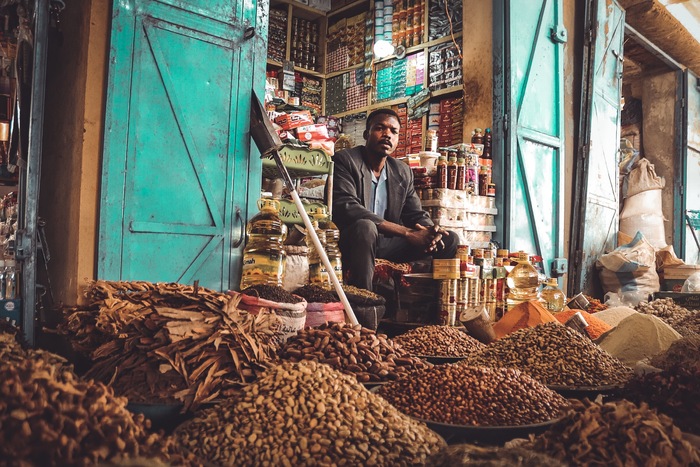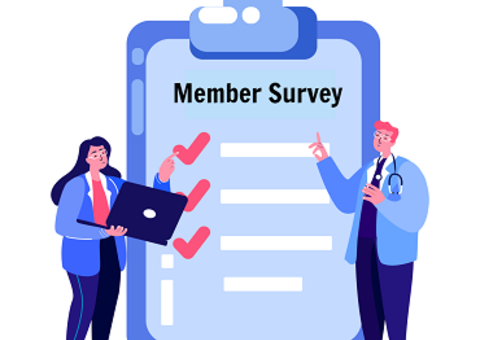Blog
DFI leadership during the COVID-19 crisis

How bad do you think the economic crisis will be? What are the greatest challenges? What should Development Financial Institutions (DFI’s) prioritize? These were some of the poll questions addressed to the audience who joined a very interesting webinar organized by Dalberg on April 9, 2020, about the response of DFI during the COVID-19 crisis. Panelists included Andrew Herscowitz, CDO of USDFC; Irene Arias, CEO of IDB-Lab; Jonathan Charles, Managing Director at EBRD; Stéphanie Émond, Director at FinDev Canada; and Victoria Sabula, CEO of the AECF. Yan Kakar, from Dalberg, moderated the discussion.
Liquidity, delays, speed, lack of capital, and stewardship were some of the answers provided by the audience to the opening questions. Throughout the conversation, the panelists confirmed those challenges, recognizing as well, as Andrew Herscowitz said, that nobody was prepared for COVID, and, no single institution, government, or private business have enough funding to solve the problem alone. Therefore, a mixed stimulus such as blended finance, partnerships, or, as Jonathan Charles called “collective actions,” are needed. Here lies DFI relevance, having a key role in helping those in need to endure the crisis; however, this is an ongoing learning process where DFI are adapting their priorities and process.
Priorities. USDFC’s response is focusing on two areas, health, and economics. Their immediate health response is focused on how to enhance medical equipment as soon as possible. A medium phase is how to bring to people‘s doors, therapeutics medication, and then vaccines once they are developed. In the economic area, the urgency is to provide liquidity to the most vulnerable. IDB-Lab, as Irene Arias said, is focused on supporting entrepreneurs in Latin America and the Caribbean (LAC). She mentioned the case of an entrepreneur financed by the IDB and Brazil’s government that is producing 2,000 respirators for Brazilian hospitals. The AECF, as Victoria Sabula mentioned, is focusing on supporting entrepreneurs and businesses to avoid shutdowns and job losses
Liquidity and speed. Panelists agreed that liquidity is the main problem businesses and entrepreneurs are facing, consequently, putting money out their door as soon as possible, reducing the application process (Victoria Sabula) and moving quickly, (Jonathan Charles), is crucial to avoid business dead and jobs losses. The challenge for FDI’s is that due to COVID and the travel restrictions, they cannot do due diligence properly, not without recognizing that a reduction in attention times is needed. FinDev Canada, for example, is working on reducing its time to close deals. IDB-Lab is offering liquidity lines to entrepreneurs in LAC, and so is EBRD doing with their existing clients, providing working capital credits to them.
Comfortable with loss. Andrew Herscowitz jumped in with a crucial fact, the DFI risk aversion. “We need to get comfortable with the concept of loss, as ultimately it’s about leverage. We’re not commercial banks. We serve as a bridge between development agencies that give grants and the private sector.” The panelist supported the idea, adding that it implies a complete change in the institution’s management way of thinking (Stéphanie Émond) and a revision of the credit scorecards (Jonathan Charles).
Collective actions. Partnerships among governments, private sector, society, and development institutions are needed during this ongoing crisis, but their magnitude requires unusual practices, such as sharing due diligence among DIF to reduce approval time. Jonathan Charles and moderator Yan Kakar named this type of collaborations ‘collective actions’. IDB-Lab shared a partnership with USAID to launch the “Better together Challenge” as an initiative to support Venezuelans and host communities affected by the regional crisis.
Beyond money. This unusual, health, and economic crisis, is challenging institutions to build more than financial solutions. As Irene Arias said, entrepreneurs need talent and connections to find answers together. Jonathan Charles went over the policy side, saying that “policy expertise will be as useful as money.” Also, small and micro enterprises need technical assistance, as Victoria Sabula said, those businesses need technical advice about business continuity.
During their final remarks, one panelist referred to the ongoing pandemic as an opportunity for DFI to work together and share information (Andrew), focusing on the more marginalized such as women and girls (Stéphanie), finding new ways to drive countries’ economies once darkness is over (Jonathan), and being able to take more risk and support innovation (Irene). In the case of entrepreneurs in Sub-Saharan Africa, Victoria Sabula said that they are susceptible to many shocks, and COVID is just another one; hence the task for AECF is to support vulnerable communities retaining the jobs that entrepreneurs are offering.










